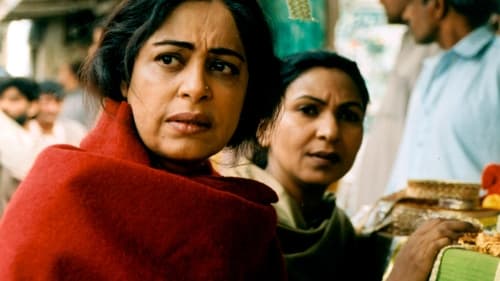
Writer
In the remote valleys of the Hindu Kush live the Kalash people, the smallest ethnic minority in Pakistan. With a distinct culture and polytheistic religion, they are said to be descendants of Alexander the Great’s troops. But modern life is reaching their valleys and their culture and way of live is under threat.

Director
In the remote valleys of the Hindu Kush live the Kalash people, the smallest ethnic minority in Pakistan. With a distinct culture and polytheistic religion, they are said to be descendants of Alexander the Great’s troops. But modern life is reaching their valleys and their culture and way of live is under threat.

Director
‘Chotay Shah’ is Sabiha Sumar’s short film for the ‘Zeal For Unity‘ project. ‘Zeal for Unity’ is Zee Entertainment’s unique peace initiative aimed at bringing together nations in conflict through their creative thought leaders. Twelve filmmakers from India and Pakistan have been brought together to showcase their films on a single platform.

Pakistani director Sabiha Sumar and Indian actor Kalki Koechlin take an inspiring and stunning transnational journey through India and Pakistan, uncovering the common humanity beyond the divisive political rhetoric.

Director
Pakistani director Sabiha Sumar and Indian actor Kalki Koechlin take an inspiring and stunning transnational journey through India and Pakistan, uncovering the common humanity beyond the divisive political rhetoric.

Screenplay
Good Morning, Karachi is the story of a young girl (Amna Ilyas) who wants to be a model while struggling towards her dream against the backdrop of the Benazir Bhutto assassination.

Director
Good Morning, Karachi is the story of a young girl (Amna Ilyas) who wants to be a model while struggling towards her dream against the backdrop of the Benazir Bhutto assassination.

Director
Documentary in which President Musharraf explores the different worlds and influences on political life in Pakistan at a dinner in his official residence, the Army House. Labourers and intellectuals, journalists and industrialists add to the debate, as the role that a military leader can play in guiding a state towards modern democracy is questioned. (Storyville)

Writer
Пришедший к власти в 1979 году генерал Зия-уль-Хак установил в Пакистане военное положение, а через несколько месяцев провел исламизацию законов страны. Аиша, уравновешенная женщина лет сорока, посвятила свою жизнь образованию 18-летнего сына Салима в небольшой деревушке Чахли в Пенджабе. Салим — спокойный мечтатель, но быстро меняющаяся политическая ситуация беспокоит Аишу, так как её сын меняется до неузнаваемости.

Director
Пришедший к власти в 1979 году генерал Зия-уль-Хак установил в Пакистане военное положение, а через несколько месяцев провел исламизацию законов страны. Аиша, уравновешенная женщина лет сорока, посвятила свою жизнь образованию 18-летнего сына Салима в небольшой деревушке Чахли в Пенджабе. Салим — спокойный мечтатель, но быстро меняющаяся политическая ситуация беспокоит Аишу, так как её сын меняется до неузнаваемости.

Director
Acclaimed director Sabiha Sumar, recent winner of the Golden Leopard at the Locarno International Film Festival for her feature Silent Waters, offers an insightful perspective on Pakistan in this finely crafted personal film. Beginning with the creation of Pakistan in 1947, Sumar traces the relationship of Islam to the state in an effort to understand how women are coping with and surviving the increasing religiosity of civil and political life in her country. Raised in a more secular time, she struggles to comprehend how religious schools have expanded at once unthinkable rates and presents chilling footage of a mother encouraging her toddler to be a martyr when he grows up. Mixing political analysis with interviews with activist colleagues, noted Islamic scholars and Pakistani women who have chosen to embrace fundamentalism, Sumar’s provocative questions dramatically capture the tension between liberal and fundamentalist forces that are shaping life in contemporary Pakistan.










